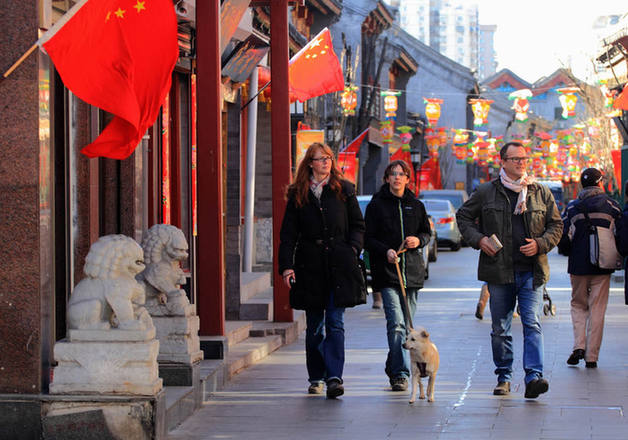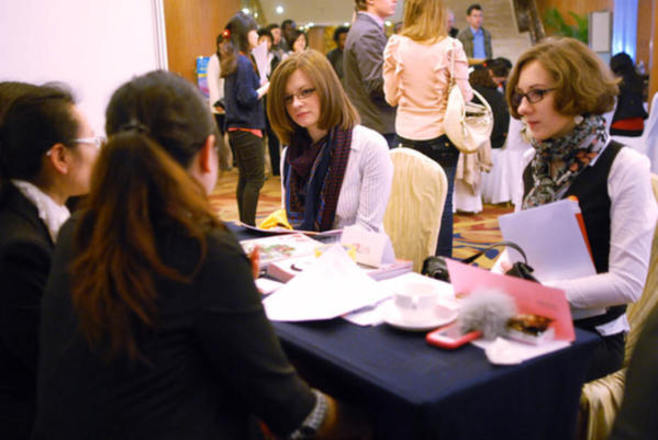 Culture Shock Is No Shock
By Robert Parkinson-CEO of RMG Selection
Culture Shock Is No Shock
By Robert Parkinson-CEO of RMG Selection
This article is about the new expat-executive in China. I am writing to offer my perspective on what it’s like to be the new boy (or girl) in a country that some people regard as the embodiment of culture shock itself.
First I’m going to talk about two typical situations that I have encountered over 10 years in the country. Then I’m going to offer some analysis. These are just my opinions, but I hope you find them helpful.
All Change!
The first pattern of expat-behavior which I have experienced as a new GM in China, and heard repeated by many others, is the “All Change Please” mentality. The confident expat is “pumped up” at being sent to “one of our most important markets,” delighted to have a chauffeur (how many middle managers have drivers in the West?), and still flush with the afterglow of flying at the front, or at least the middle of the plane. She or he wants to do one thing and one thing only: MAKE THEIR MARK! (If you’re British) KICK SOME BUTT (If you’re an American) or DEAL WITH ISSUES! (If you’re from down-under).
Logically, relocating to a place like China is something of a high-profile position so there is a natural desire to impress others and get results. However do keep the following in mind:
The road to Sino-Success is littered with the souls of expats who go back early or whose contracts are not renewed because they “fixed what wasn’t broken.” If it isn’t broke don’t fix it.
In The Seven Habits of Highly Effective People Stephen Covey says you should listen first; then you’ll be listened to. This is just logical — but it’s amazing how many people do not do this, and nowhere is it more appropriate than China.
It is true that Western culture and Asian culture are different. Don’t make the mistake of thinking that you have to change what you do 180 degrees, but you certainly do have to respect the people (and their communication preferences, which I will address later).
The following is a good example for illustration. Imagine working in London, for a Chinese boss who speaks to you in Mandarin. If your boss insisted that the “British way” did not work in Britain, how would you react? I would think he needed mental health treatment. Isn’t it true that many foreigners make exactly this mistake in China?
Head-office
The second misperception which runs right through my network of GM level connections, particularly among small and medium-sized enterprises, is that one of your biggest challenges is the “head-office.” An experienced businessman I know well, who has had enormous and repeated successes, says, “I’ve been doing business in China for 10/12/15 years (etc),” and that simply is not the case. Getting on a plane three times a year and coming to China for a week is not “doing business here.” It’s a tiny, jetlagged glimpse through a tiny crack in a window. This is not the real-time real-life day-to-day understanding of a community/country that you get from living somewhere.
The problem, of course, is that head-office believes it is. They think they do “get it” and that they are qualified to make judgements about “your market,” and actually they are – a bit – because what they lack in ground-level understanding, they gain in perspective.
Here are some points to think about:
Congratulations. You are now officially a juggler. Your job is not to general-manage, it’s to manage (cope) with the expectations of the local staff (and of course you spend your first two years tripping over your own mistakes — I know I did) and the demands of head-office. You are now more therapist than general manager. Congratulations again.
Whoever said running a business was unambiguous? There will be things that never make sense. Get used to it. Ambiguity is part of the job. One major U.S. computer manufacturer actually tests for “ability to handle ambiguity” as an HR competency
Remember who you actually have to live and work with on a day-to-day basis.
Remember who pays for your driver and biz-class flights.
Ten Years on
Ten years after moving to this wonderful, crazy, frenetic, confusing, engaging place that’s called the People’s Republic of China, I consider that I have learned a few things that I’d like to share:
Yes, there are cultural differences, but there are far more similarities…however…
… Chinese culture is ancient, really ancient. Do you really think you can reverse how people intuitively think and do business? Remember my earlier Chinaman in London story.
I think the key point is listening and communication. Don’t obsess over getting “your own way,” obsess with being seen as someone who will listen (by the way, I still remind myself of this daily, and I am no expert).
Following on from the last point, DO NOT turn your internal company relationships into “us & them” situations where it’s your local staff vs. the head-office. This is fatal. We’re all people working for the same company, with the same goals. We will have the same basic needs.
The more interested you are in China, the more interested you’ll become.
Learn more Chinese. Just being able to order beer is not enough.
There you go. I hope this is useful to you. Good luck.
Read the original link at: http://www.chinatoday.com.cn/english/life/2014-08/05/content_633245.htm







